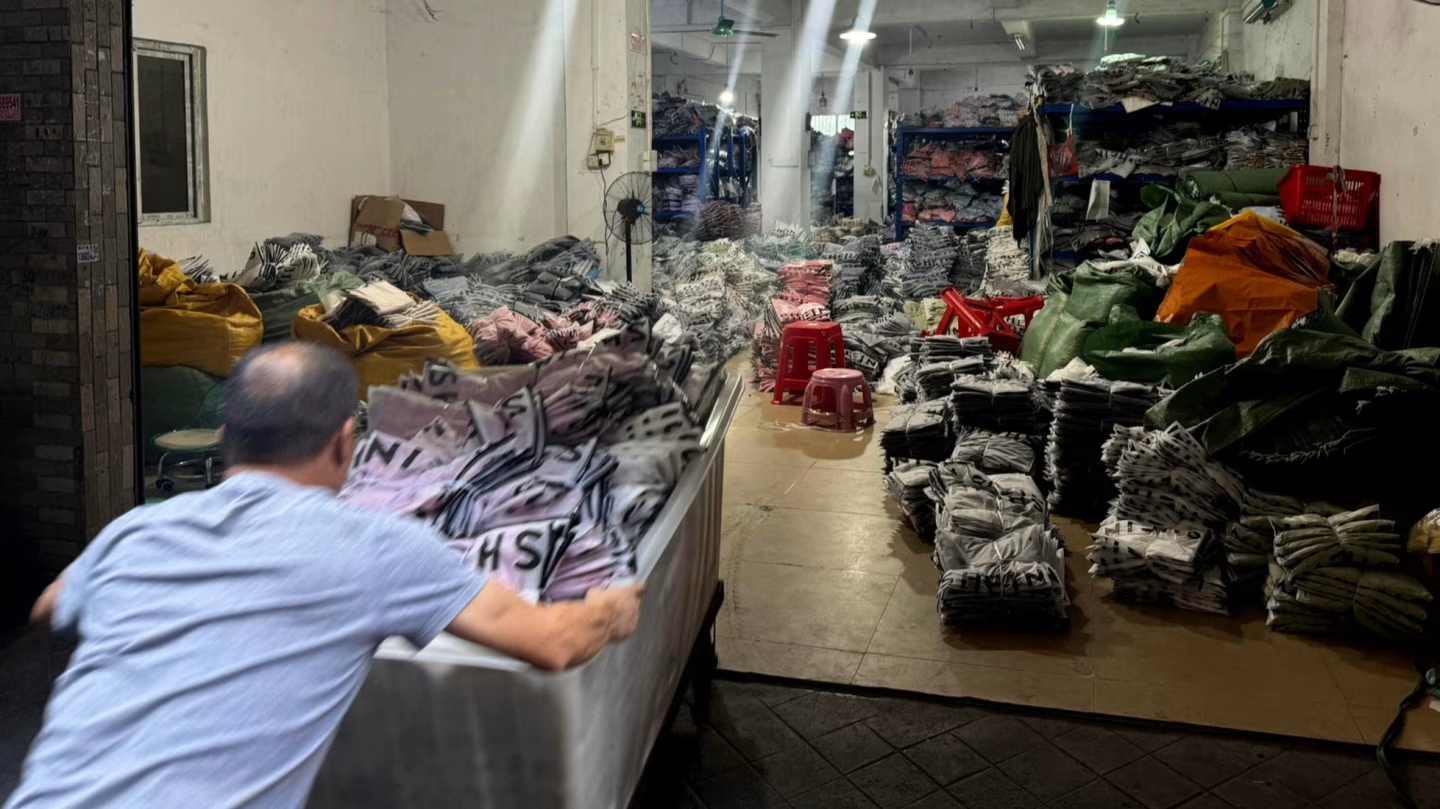Inside Shein’s “Village”: The Reality of Fast Fashion

The bustling neighborhood of Panyu in Guangzhou, China, is often referred to as the “Shein village.” This area is home to a vast network of factories that produce clothing for Shein, the world’s largest fast fashion retailer. The constant hum of sewing machines fills the air, a sound that echoes from dawn until late at night. Workers toil tirelessly to create garments that will soon be shipped to over 150 countries. However, beneath the surface of this thriving industry lies a troubling reality: long hours, low wages, and questionable labor practices.
The Working Conditions in Panyu
In Panyu, factory workers often face grueling schedules. Many report working up to 75 hours a week, far exceeding the legal limits set by Chinese labor laws. One worker shared, “If there are 31 days in a month, I will work 31 days.” Most employees receive only one day off each month. The BBC’s investigation into this area revealed a workforce that is both dedicated and exploited.
The factories in Panyu are not just places of work; they are the lifeblood of Shein’s operations. With around 5,000 factories in the area, the demand for quick production drives workers to their limits. The BBC’s findings indicate that many workers earn between 4,000 and 10,000 yuan a month, but this is often achieved through excessive overtime. The basic wage is reported to be around 2,400 yuan, which is below the living wage threshold. David Hachfield from the Swiss advocacy group Public Eye stated, “It’s clear that it’s illegal and it violates basic human rights.”
Despite the harsh conditions, many workers feel a sense of pride in their contributions to the global fashion industry. They often express a sense of camaraderie, viewing their colleagues as family. However, the long hours and low pay raise significant ethical concerns about the fast fashion industry as a whole.
Shein’s Business Model and Its Impact
Shein’s rapid rise to prominence in the fashion world is largely attributed to its unique business model. The company operates on a “fast fashion” principle, producing large volumes of clothing at low prices. This model allows Shein to offer dresses for as little as £10 and sweaters for £6, making it a favorite among budget-conscious consumers. However, this success comes at a cost. The factories in Panyu are designed to maximize efficiency. They are filled with sewing machines, rolls of fabric, and bags of scraps, all working in a seemingly endless cycle of production. The demand for quick turnaround times means that workers often face intense pressure to meet production quotas. Factory owners have noted that while the orders from Shein can be substantial, the profit margins are slim. Many have had to cut costs, which often translates to lower wages for workers.
Moreover, Shein’s algorithm-driven approach to inventory management means that production can ramp up or down based on consumer interest. This creates a volatile work environment where temporary workers are frequently hired to meet sudden spikes in demand. While this system benefits Shein’s bottom line, it leaves workers in a precarious position, constantly adapting to the whims of the market.
Ethical Concerns and Future Challenges
As Shein prepares for a potential listing on the London Stock Exchange, it faces increasing scrutiny over its labor practices. The company has been accused of exploiting workers and has faced allegations of forced labor, particularly concerning its supply chain in Xinjiang. Critics argue that Shein’s success is built on a foundation of unethical labor practices, with many calling for greater transparency in its operations.
In response to these concerns, Shein has stated its commitment to ensuring fair treatment for all workers in its supply chain. The company claims to be investing millions in improving governance and compliance. However, many remain skeptical. Professor Sheng Lu from the University of Delaware emphasizes the need for transparency, stating, “Unless you fully release your factory list, it’s going to be very challenging for Shein.” The challenges facing Shein are compounded by its reliance on Chinese factories, which have become increasingly controversial in the global market. As the company navigates these ethical dilemmas, it must also contend with the realities of a competitive industry that demands both speed and affordability.
As consumers become more aware of these issues, the demand for ethical practices in fashion is likely to grow. Shein’s future success may depend not only on its ability to deliver affordable clothing but also on its commitment to improving the lives of the workers who make that clothing possible. The journey ahead will require a delicate balance between profit and responsibility, a challenge that the fast fashion giant must confront head-on.
Observer Voice is the one stop site for National, International news, Sports, Editor’s Choice, Art/culture contents, Quotes and much more. We also cover historical contents. Historical contents includes World History, Indian History, and what happened today. The website also covers Entertainment across the India and World.

